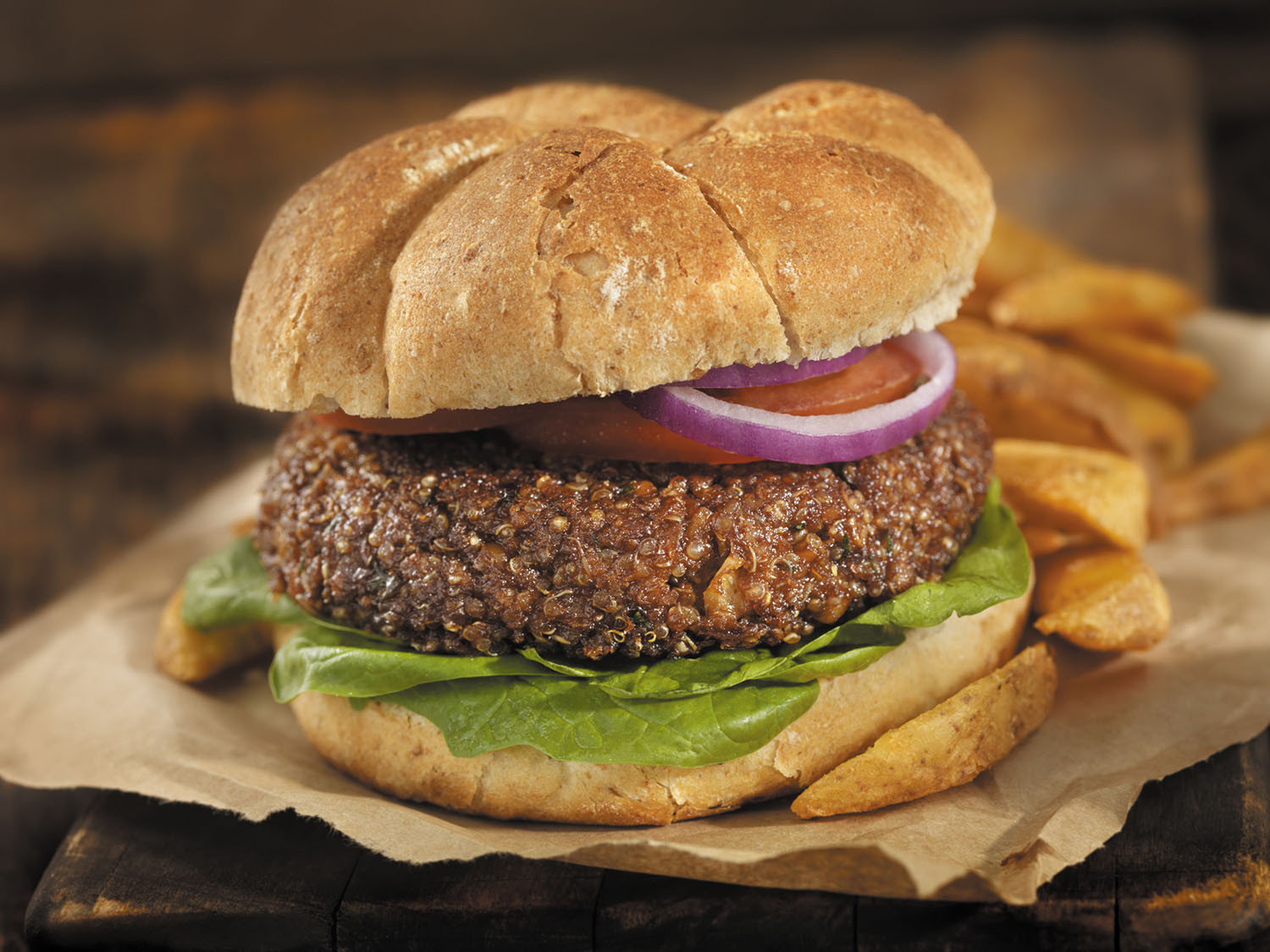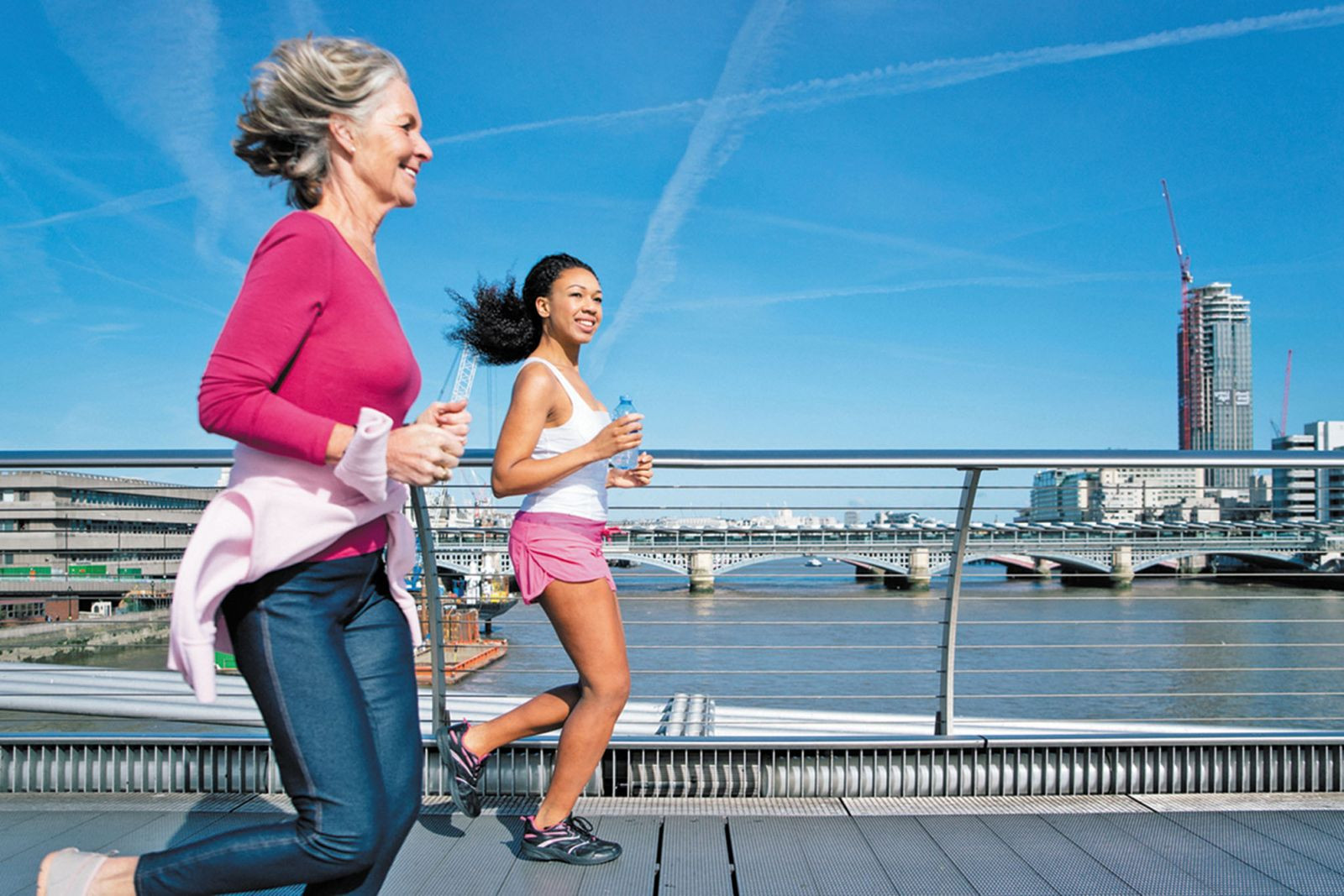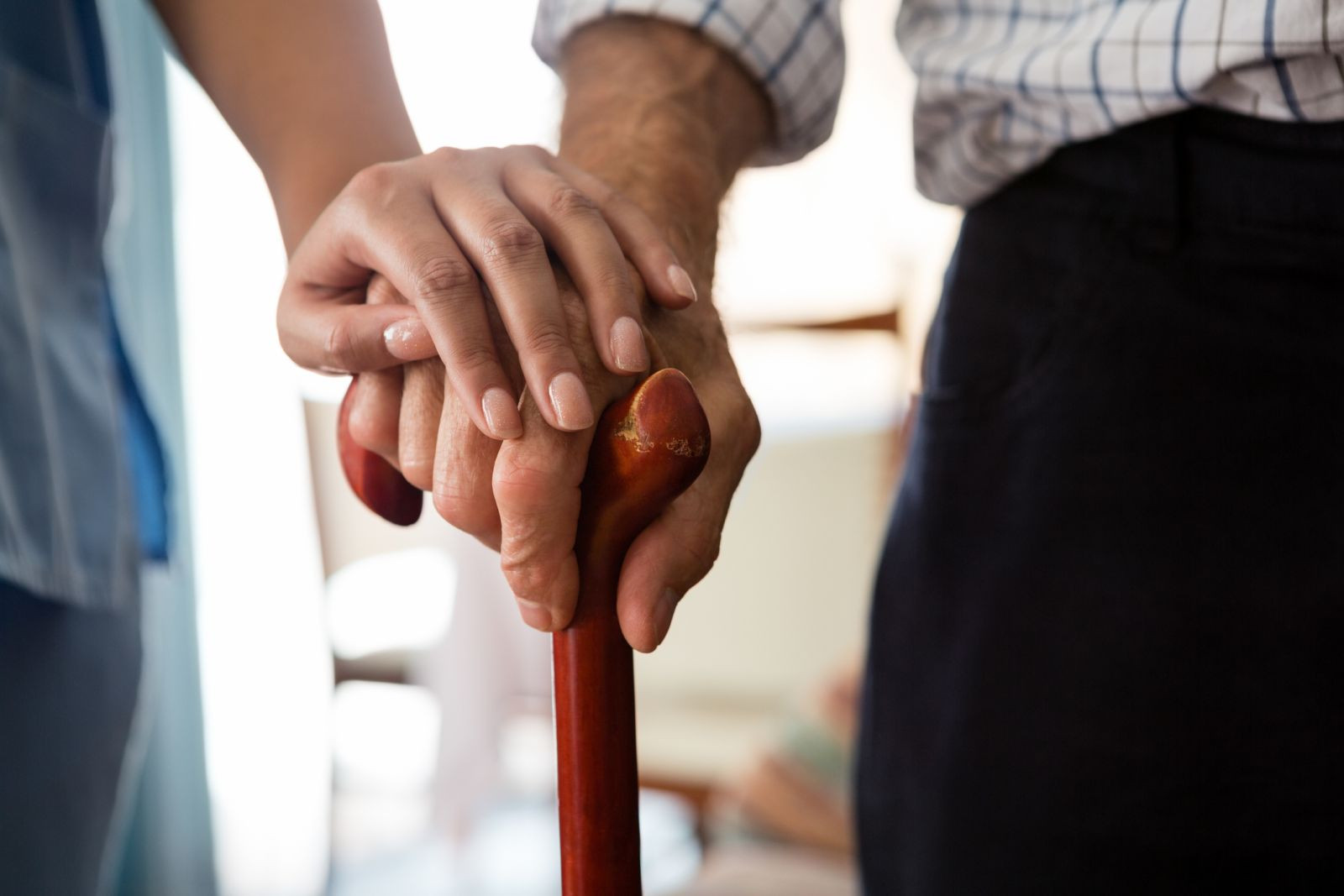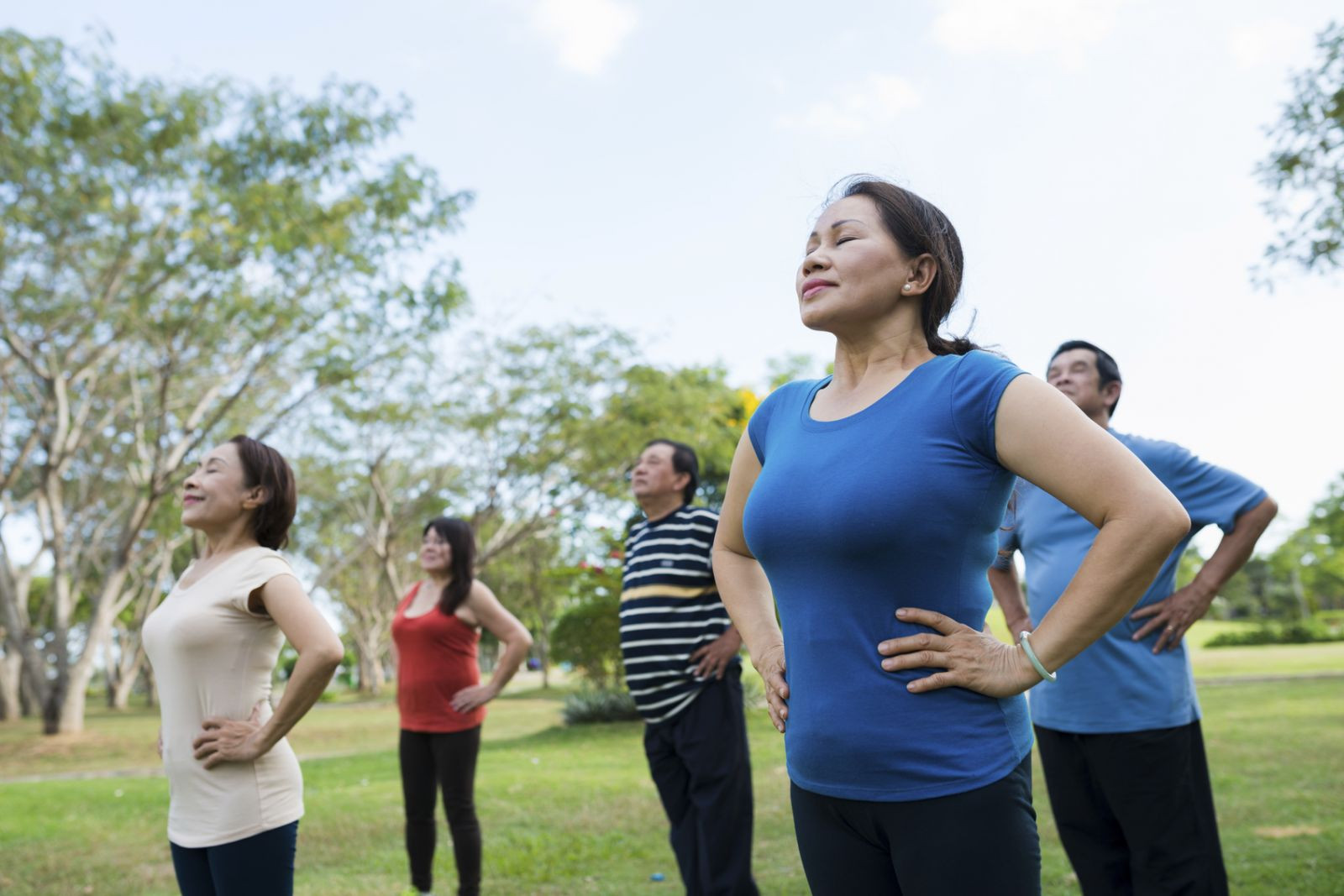
Nutritional yeast: Does this savory, vegan seasoning pack a nutritional punch?

Salmonella is sneaky: Watch out

Two jobs may lower the odds of dying from Alzheimer's disease — but why?

Mastitis: What to do when your breasts are painfully inflamed

How — and why — to fit more fiber and fermented food into your meals

UTI in older women: Why postmenopausal women are susceptible to urinary tract infection, and what to do about it

Can a routine vaccine prevent dementia?

Some adults may need a measles booster shot. Who should get one and why?

Less butter, more plant oils, longer life?

Healthier planet, healthier people
Staying Healthy Archive
Articles
Does a vegetarian diet automatically help you lose weight?
Ask the doctors
Image: © Lauri Patterson/Getty Images
Q. My sister insists that I will automatically lose weight if I become a vegetarian. Is this true?
A. While switching to a vegetarian diet can bring health benefits, including weight loss, it doesn't always. After all, cupcakes, cookies, and candy are technically vegetarian foods — but not necessarily ones that will improve your health or help you shed pounds. That said, a well-constructed and healthy plant-based vegetarian diet can help you lose weight over time, provided you make good food choices and reduce the number of calories you normally eat. The USDA notes that a healthy vegetarian eating plan includes a variety of nutrients, including protein sources to make up for meat options you are cutting out. Some good substitutions are beans, nuts, and soy products. Beyond making sure you get the right combination of nutrients, also focus on portion size and calories if you are looking to lose weight. Ultimately, keep in mind that a vegetarian diet, like any other, may help you lose weight, but it can also result in weight gain if you take in more calories than you burn off on a regular basis.
Mini workouts can add up to better health
Research we're watching
Image: © RoBeDeRo/Getty Images
Good news for people who struggle to find time for exercise: every little bit matters, even if your "workout" is broken up throughout the day. To come to this conclusion, researchers who published their results March 23 in the Journal of the American Heart Association looked at data from 4,840 people ages 40 and older who participated in the National Health and Nutrition Examination Survey from 2003 to 2006. People who spent the shortest amount of time in moderate or vigorous activity — 20 minutes or less daily — had the highest risk of dying during the roughly six-year follow-up period. But those who got at least an hour of moderate or vigorous activity cut that risk in half, and those who got at least 100 minutes a day cut their death risk by 76%. And they didn't have to get those 100 minutes all at once. Even short bursts of activity at different points in the day added up to reduced risk.
Are weight-loss drugs worth trying?
Image: Bigstock
Newer medications, which may be safer than earlier drugs, have expanded the options for treating obesity.
Obesity is now considered more than a risk factor for other conditions; it's a disease itself. It has been the subject of intense scientific and medical research to develop effective treatments. But the quest has been elusive.
Alzheimer's guide: Protect your loved one from wandering
One of the most dangerous and distressing symptoms of Alzheimer's is wandering. It may seem unfathomable that a person might suddenly get up at night to go to the post office or leave home at any hour for no apparent reason. But wandering may be prompted by deep-seated memories of work, chores, or hobbies, or a longing to return to a former home.
The inability to control wandering is what often drives families to decide to place a loved one in a nursing home. However, there are some simple measures to prevent wandering that often work well for a time and can even help postpone that difficult decision.
Anxiety and physical illness
Understanding and treating anxiety can often improve the outcome of chronic disease, such as GI tract problems and heart disease.
With headlines warning us of international terrorism, global warming, and economic uncertainty, we're all likely to be a little more anxious these days. As an everyday emotion, anxiety — the "fight or flight" response — can be a good thing, prompting us to take extra precautions. But when anxiety persists in the absence of a need to fight or flee, it can not only interfere with our daily lives but also undermine our physical health. Evidence suggests that people with anxiety disorders are at greater risk for developing a number of chronic medical conditions. They may also have more severe symptoms and a greater risk of death when they become ill.
The anatomy of anxiety
Anxiety is a reaction to stress that has both psychological and physical features. The feeling is thought to arise in the amygdala, a brain region that governs many intense emotional responses. As neurotransmitters carry the impulse to the sympathetic nervous system, heart and breathing rates increase, muscles tense, and blood flow is diverted from the abdominal organs to the brain. In the short term, anxiety prepares us to confront a crisis by putting the body on alert. But its physical effects can be counterproductive, causing light-headedness, nausea, diarrhea, and frequent urination. And when it persists, anxiety can take a toll on our mental and physical health.
Repaying your sleep debt
Why sleep is important to your health and how to repair sleep deprivation effects.
If sleep were a credit card company, many of us would be in deep trouble.
Medical evidence suggests that for optimum health and function, the average adult should get seven to nine hours of sleep daily. But more than 60% of women regularly fall short of that goal. Although each hour of lost slumber goes into the health debit column, we don't get any monthly reminders that we've fallen in arrears.
How should core work fit into your overall exercise plan?
Your core muscles are the sturdy link between your lower body and upper body. Every move you make starts in your core or transfers through it. So, a weak or tight core can translate into less power from your arms and legs.
It's well worth including core work in your exercise plan. The Physical Activity Guidelines for Americans from the U.S. Department of Health and Human Services recommend the following well-rounded plan:
A breathing technique to help you relax
The practice of yoga incorporates many separate breathing techniques (above and beyond the coordinated breathing you do during yoga routines) that can help relax you and release tension. And many of these techniques can be done anytime, anywhere — not just during yoga class.
If you'd like to reap the benefits of these breathing techniques, start with the abdominal breathing technique described below. Once you've mastered abdominal breathing, you can then try others based on the unique benefits that each technique offers.
Should you carry the opioid overdose rescue drug naloxone?
The Surgeon General has issued an advisory recommending that people carry and know how to use naloxone, and although it is an effective treatment for overdose, it does not address the larger issues around the opioid crisis.
The health benefits of shared living
Living with others offers a way to stay independent and avoid a cascade of mental, emotional and physical health problems.
Image: © Petar Chernaev/Getty Images
Americans want to age in place. AARP research finds that nine out of 10 people ages 65 or older want to stay in their homes in their later years.
That goal isn't always achievable, because of challenges to independence such as a limited income or chronic health problems. "Sometimes it's frailty. Weakness, stiffness, and aching joints creep up on you, decrease function, and keep you from climbing stairs or taking care of yourself or your home," says Dr. Erin Stevens, a geriatrician and palliative care physician at Harvard-affiliated Massachusetts General Hospital.

Nutritional yeast: Does this savory, vegan seasoning pack a nutritional punch?

Salmonella is sneaky: Watch out

Two jobs may lower the odds of dying from Alzheimer's disease — but why?

Mastitis: What to do when your breasts are painfully inflamed

How — and why — to fit more fiber and fermented food into your meals

UTI in older women: Why postmenopausal women are susceptible to urinary tract infection, and what to do about it

Can a routine vaccine prevent dementia?

Some adults may need a measles booster shot. Who should get one and why?

Less butter, more plant oils, longer life?

Healthier planet, healthier people
Free Healthbeat Signup
Get the latest in health news delivered to your inbox!
Sign Up











